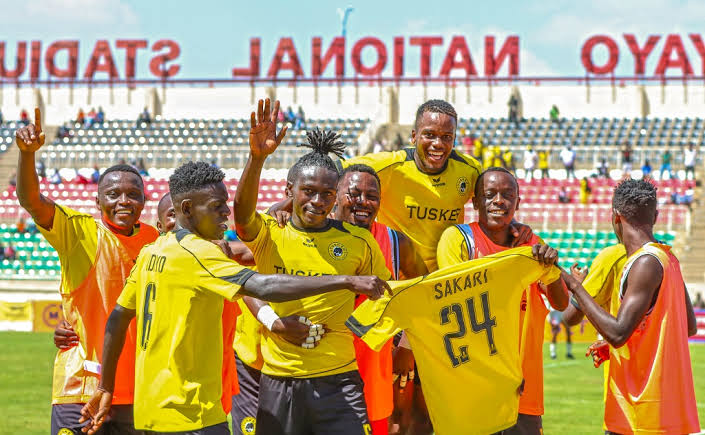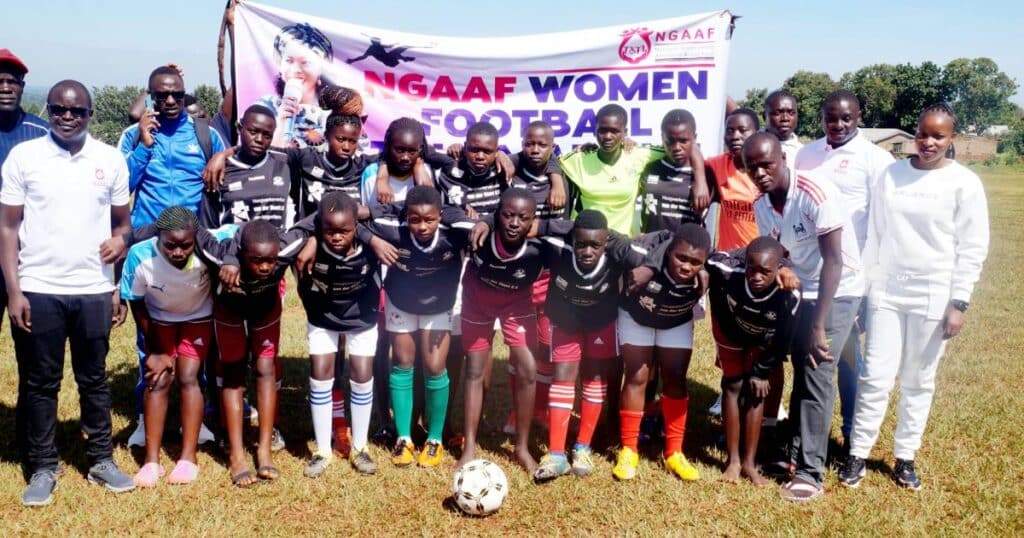Soccer, known as football in Kenya, transcends the boundaries of sport, becoming a vibrant thread woven into the social fabric of the nation. In Kenya, where passion for the beautiful game runs deep, soccer plays a pivotal role in shaping communities, fostering unity, and driving positive change across society.
Cultural Identity and National Pride: In Kenya, soccer is more than just a game; it’s a source of national pride and identity. From the grassroots level to the international stage, Kenyans rally behind their beloved teams, donning jerseys and waving flag in solidarity. The national team, Harambee Stars, serves as a unifying force, bringing together people from diverse backgrounds under the shared banner of patriotism and sporting excellence.

Community Cohesion and Social Integration: Soccer serves as a powerful tool for promoting social cohesion and integration within communities. Whether it’s informal matches in local neighborhoods or organized leagues in urban centers, soccer breaks down barriers of ethnicity, religion, and socio-economic status, fostering friendships and mutual respect among players and fans alike. In a country as culturally diverse as Kenya, soccer serves as a common language that transcends linguistic and cultural differences, uniting people in pursuit of a common goal.
Youth Development and Empowerment: For many young Kenyans, soccer offers a pathway to empowerment and personal development. Through grassroots programs and academies, talented players are provided with opportunities to hone their skills, receive mentorship, and pursue their dreams of professional careers in the sport. Soccer not only instills discipline, teamwork, and resilience but also offers a constructive outlet for youth, steering them away from negative influences such as crime and substance abuse.

Health and Well-being: Soccer promotes physical fitness and well-being, contributing to the overall health of individuals and communities. Beyond the recreational benefits, organized soccer leagues and tournaments encourage regular exercise and healthy lifestyles, combating sedentary habits and non-communicable diseases. Moreover, soccer serves as a platform for health education and awareness campaigns, addressing issues such as HIV/AIDS prevention, malaria control, and sanitation practices.
Economic Opportunities: The soccer industry in Kenya generates significant economic opportunities, driving employment, entrepreneurship, and investment across various sectors. From stadium construction and infrastructure development to merchandising, broadcasting rights, and tourism, soccer stimulates economic activity and stimulates local economies. providing avenues for socio-economic mobility and prosperity.

Challenges and Opportunities Ahead: Despite its numerous benefits, soccer in Kenya also faces challenges such as inadequate infrastructure, funding constraints, and governance issues. Addressing these challenges requires concerted efforts from stakeholders including government agencies, sports federations, private sector partners, and civil society organizations. By investing in youth development, infrastructure upgrades, and good governance practices, Kenya can harness the full potential of soccer to drive social, economic, and cultural progress.
Soccer occupies a central place in the hearts and minds of Kenyans, serving as a catalyst for social cohesion, youth empowerment, and economic development. Beyond the realm of sport, soccer embodies the collective aspirations and values of Kenyan society, reflecting its resilience, diversity, and spirit of unity. As Kenya continues on its journey of progress and transformation, soccer will remain a powerful force for positive change, enriching the lives of millions and leaving an indelible mark on the nation’s collective consciousness.




